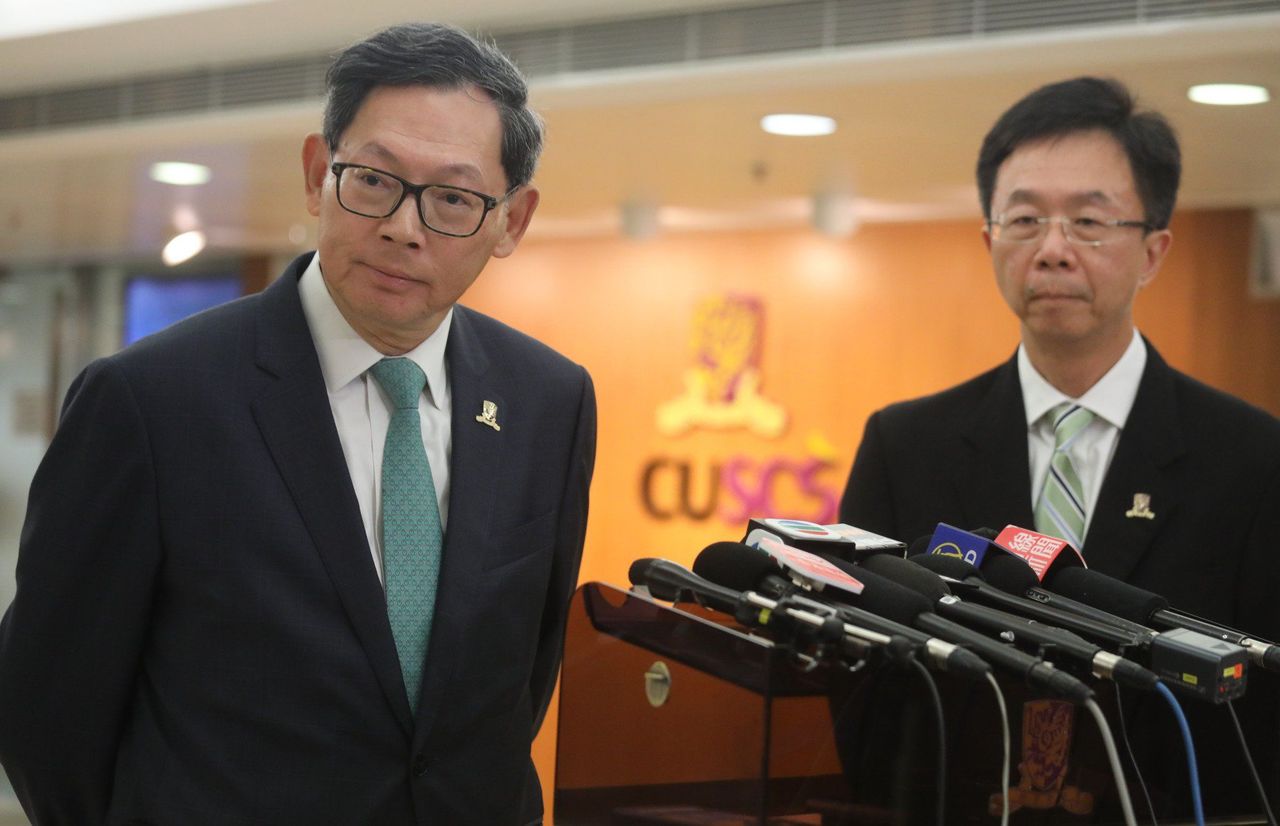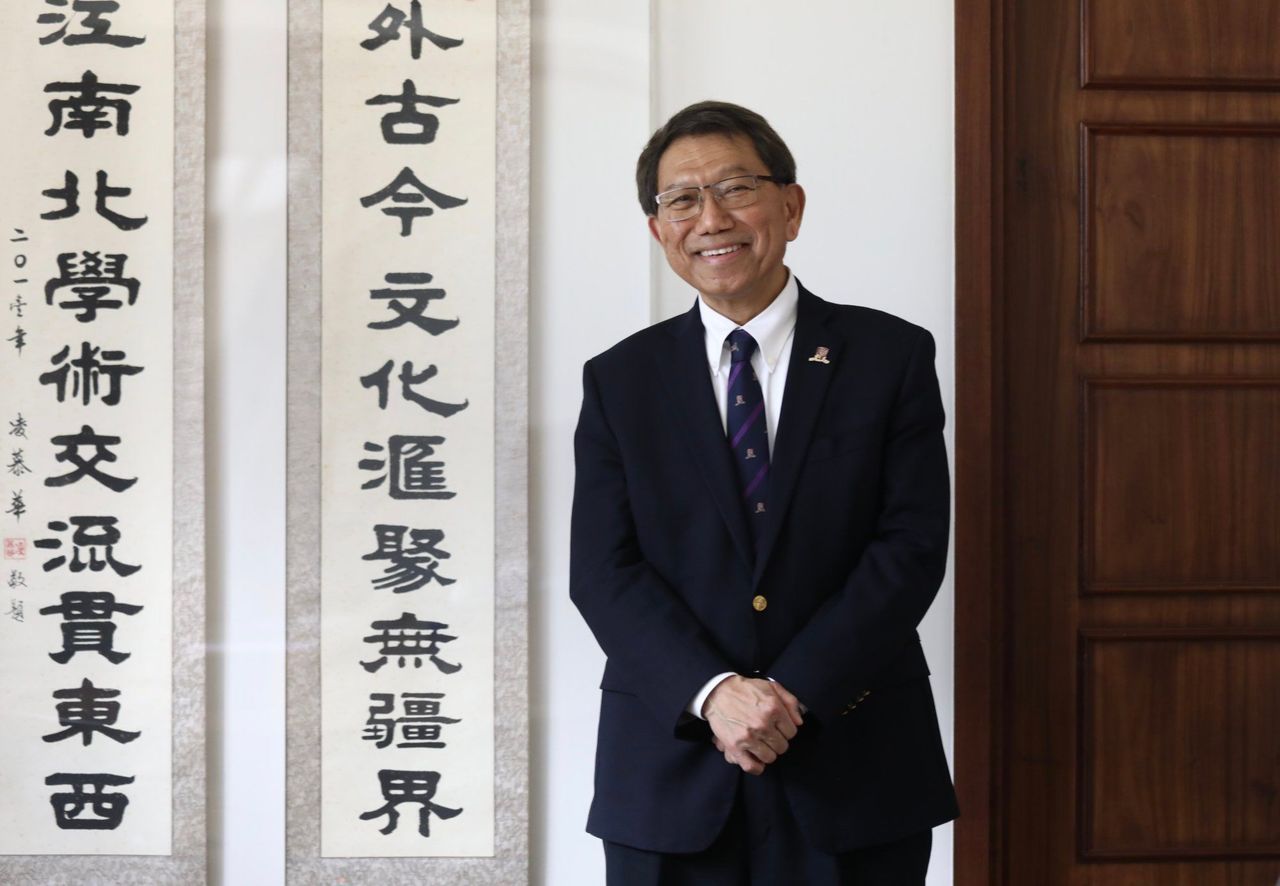Hong Kong News

Chinese University of Hong Kong task force takes middle ground in council reform
A task force set up by a leading university in Hong Kong has opted for a middle ground in reforming its council after a contentious proposal that would drastically reduce the percentage of staff members was met with overwhelming opposition in a consultation exercise.
The council on Monday endorsed the findings of the task force, which had concluded that a milder proposal floated in 2016 remained “fit for purpose”.
The task force was formed to consult stakeholders on both that proposal and the recent bill spearheaded by lawmakers which suggested raising the threshold for the council to appoint the university’s president and increasing the number of members chosen by the chief executive.
The task force, led by ex-Hong Kong central banker Norman Chan Tak-lam, also suggested the current arrangement of having three lawmakers sitting on the board should be reviewed “in the interest of achieving a more optimal downsizing”.
 CUHK council member Norman Chan (left) and John Chai meet the press in
Admiralty after a meeting of the task force reviewing the proposal to
reform the university’s council.
CUHK council member Norman Chan (left) and John Chai meet the press in
Admiralty after a meeting of the task force reviewing the proposal to
reform the university’s council.
“Looking across the city’s eight universities, some may not have mandated the inclusion of legislators on their councils, but many have invited lawmakers as members,” said Professor John Chai Yat-chiu, chairman of the Chinese University of Hong Kong (CUHK) council, when asked if the task force’s suggestion was floated to minimise political intervention.
He stopped short of saying whether the more contentious proposal by a trio of lawmakers on the council, which included Liberal Party’s Tommy Cheung Yu-yan, was abandoned or not following a special meeting with fellow members.
“The task force has eloquently commented specifically on every point of the 2022 proposals and gave its recommendation,” Chai said, referring to the plan mooted by the three lawmakers.
The trio had sought to reduce the number of council members from 55 to 34 while drastically increasing the proportion of external representatives, so they would dominate the body at a ratio of 2:1 to internal ones, who make up half of the membership.
The bill also suggested raising the threshold for the body to appoint the university’s president to three-quarters of council votes and increasing the number of members chosen by the chief executive.
The proposed overhaul was seen as the pro-establishment bloc’s response to the reappointment of Rocky Tuan Sung-chi, who will stay on as CUHK president until 2026. Tuan was accused by some pro-Beijing figures of being sympathetic to protesting students during the 2019 social unrest.
 President of the Chinese University of Hong Kong Rocky Tuan.
President of the Chinese University of Hong Kong Rocky Tuan.
According to the task force’s report, which was released on Monday, it agreed that the current 54-member council should be scaled down to between 25 to 34 to ensure its efficiency and effectiveness, with the ratio between internal members and external representatives kept between 1 to 1.64 and 1 to 2.13.
The 2016 proposal, endorsed by the task force, suggested downsizing the council to 29, with internal members taking up 11 seats. In lawmaker Cheung’s proposal, internal members would also take up 11 seats, but in a 34-strong body.
The task force also concluded that the threshold for electing the vice-chancellor and provost should be raised from two-thirds to 75 per cent of council votes.
The consultation conducted by the task force, which garnered 880 responses from the university’s stakeholders, including staff, students and alumni, reported overwhelming opposition to several elements of Cheung’s proposal.
Norman Chan, the CUHK alumnus who led the task force, defended the group’s recommendation to cut the number of staff representatives sitting on the council.
“To reduce the size of the council from 54 [to about 30], it would be inevitable for some groups to be cut down. You would notice that the largest amount of cuts came from internal members, while external representatives would take up the majority,” Chan said.
“The governance principle is that because the council is the organ of the highest power of the university, which decides resource allocation and issues of all aspects, suitable checks and balances are needed. This means external council members must exceed the number of internal management.”
Cheung left the meeting without responding to questions from the press, merely saying the council chairman would speak on the proposals as he was “of too low a standing”.











